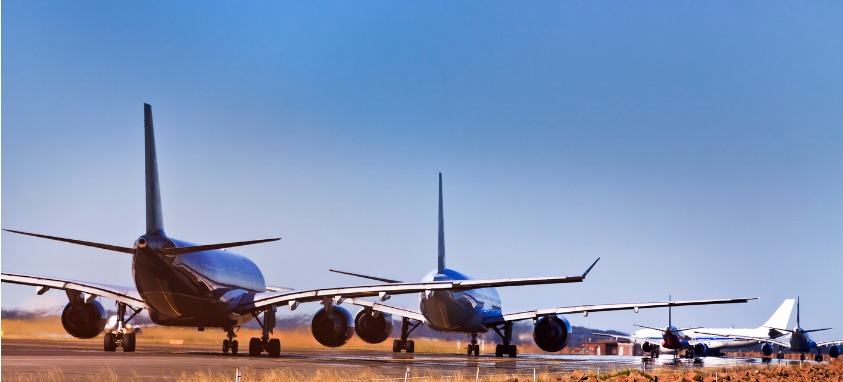Everyone knows airline travel can be stressful. There’s the pressure to make your flight, and that antsy feeling when it’s delayed. But don’t think the collective frustration is going unnoticed.
AirHelp, a company that works to get compensation for the victims of flight delays and cancellations into or out of the EU, recently ranked the best and worst airlines. Metrics used include on-time performance, quality of service and quality of claim processing.
And the Award Goes To…
Qatar Airways took first place with an on-time performance of 8.9, a quality of service performance of 9.5, and a claim processing score ringing in at 8.9. This gave the airline’s a total average score of 9.08.
Next was Lufthansa Airlines, based in Germany, with a score of 8.57. Ethihad Airways in the United Arab Emirates took the bronze at 8.43. WOW Air in Iceland came in last with a score of 5.04.
But out of the 72 airlines analyzed, major U.S. carriers failed to steal even a small segment of the show. American Airlines was highest, with a ranking of 23rd and overall score of 7.84. United Airlines came in at 37th, and Delta at 47th. All three scores are lower than years before.
“It is clear the U.S. is in need of significant improvement, with overbooked flights and cancellations making national headlines month after month, and the consistent mistreatment of U.S. consumers,” said AirHelp CEO Henrik Zillmer in the report.
Airports Are No Exception
AirHelp also ranks American airports low.
The company surveyed 147 airports based on quality of service, on-time performance and overall passenger sentiment on Twitter. Hamad International Airport (DOH) in Qatar, Athens International Airport (ATH) in Greece and Haneda Airport (HND) in Tokyo were the best performers.
Seattle-Tacoma International Airport (SEA) was highest performing in the U.S, clocking in at 33rd. It was followed by San Francisco International Airport (SFO) at 45th and Denver International Airport (DEN) at 51st.
In a separate report, AirHelp found that nearly a third of flights to the European Union were disrupted at Newark Liberty International Airport (EWR). Out of the 10 biggest U.S. airports, Newark had the most disruptions. Houston’s George Bush Intercontinental Airport (IAH) had the least, with 81 percent of flights leaving as scheduled. That airport, however, still placed 63rd on this year’s ranking due to low passenger sentiment.
The Effects
AirHelp also found that almost 50 percent of Americans felt mistreated by airlines—and lied to about the cause of flight disruptions. The study surveyed more than 2,000 passengers and found that more than one in 10 had been stranded at the airport after a delay. That same amount also reported missing important events due to the delay or cancellation.
Respondents complained of lack of adequate assistance from airlines.
“For years, there has been an oversupply of airlines flying along the same routes, which leads to price wars, especially on holiday routes,” Zillmer said. “Therefore, airlines reduce customer service offerings in order to maximize profits, frequently leading to the mistreatment of air passengers. As a result, passengers are sometimes faced with rude staff, and are experiencing extreme delays and disruptions that the airlines can avoid or eliminate.”
According to EU regulation EC 261, air passengers, regardless of nationality, are entitled to compensation if an airline based in the EU delays flights more than three hours, cancels it or denies boarding due to overbooking. Exceptions include inclement weather or heated political climates. Under the law, airlines should provide passengers with accommodations at a hotel and transportation there.
Passengers can file claims up to three years after the departure date. AirHelp estimates more than 500,00 U.S. passengers are entitled to nearly $450 million.
“We urge passengers who may have been affected by delays or cancellations this year to read up on their rights to ensure that they’re not missing out on the compensation that they’re legally entitled to,” Zillmer said.
In the United States, airlines are not required to compensate passengers when flights are delayed or cancelled. Individual airlines set their own policies.





